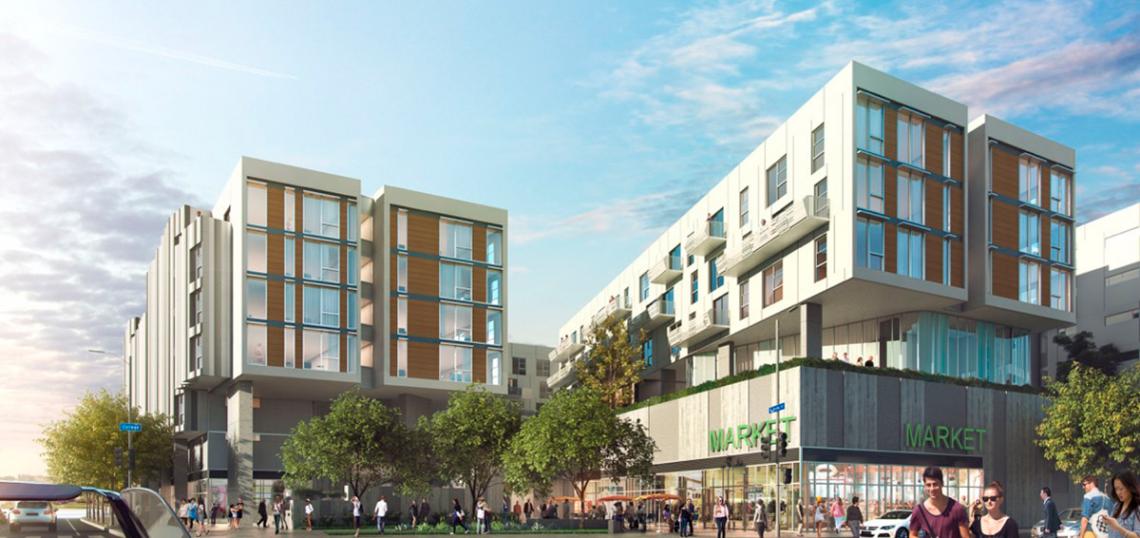Slowly but surely, Atlas Capital Group is moving forward with its proposal to construct apartments and retail across a vacant five-acre lot near Los Angeles State Historic Park, with the publication of the project's draft environmental impact report.
The proposed development, known as College Station, would consist of multiple wood-frame structures atop a two-story podium at 924 N. Spring Street. A full buildout of the project would create 770 residential units - including studios, one-, and two-bedroom apartments - above roughly 51,000 square feet of ground-floor commercial space. Potential retail tenants would include community-serving businesses such as a grocery store, restaurants, a coffee shop, and a juice bar, a barber shop, and an ice cream parlor.
Parking would be provided in above- and below-grade garage space, with total accommodations for 1,179 vehicles and 899 bicycles.
Chinatown-based architecture firm Johnson Fain is designing College Station, which would welcome pedestrians with two landscaped plazas at main entryways, and three other "pocket" seating areas. The buildings themselves allude to industrial design, with modulated facades featuring metal panels and saw-tooth bay windows.
Per the environmental report, Atlas Capital anticipates an approximately 43-month construction timeline for the project, although a groundbreaking date has not been set.
The project, which sits directly across the street from the Gold Line's Chinatown Station, is one of a handful of large mixed-use developments in the pipeline for Chinatown. Most notably, Lincoln Property Company and the family which owns the San Antonio Winery has teamed up to proposed a series of mid-rise apartment towers on a narrow strip of land which overlooks the State Historic Park.
Atlas Capital, which purchased the former holdings of now-defunct EVOQ Properties, is also the owner of the ROW DTLA complex in the Industrial District.
- College Station Archive (Urbanize LA)







